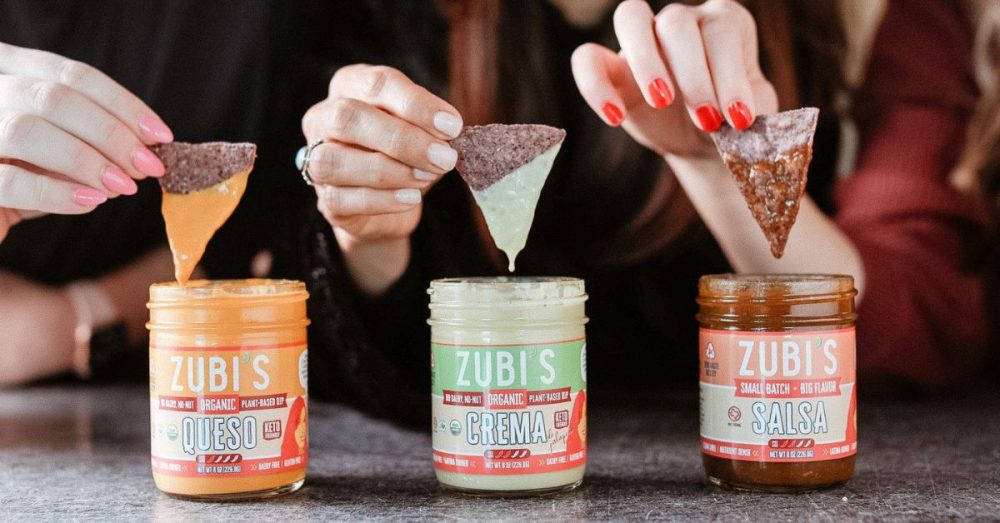For nearly a decade, I poured my heart and soul into running a food company that blossomed into a national brand, gracing the shelves of stores like Sprouts, Whole Foods, Albertsons, and even Costco. My mission was to create fresh, preservative-free, organic food products that not only honored my Latin heritage but also catered to those with food allergies by avoiding the top eight allergens (no dairy, soy, nuts, etc.). Our company prided itself on never introducing preservatives to extend shelf life. I was deeply and personally involved in every step of the process, from developing the recipes to managing the supply chain by farming many of our raw materials.
COVID-19 was hard on many businesses, and despite our relentless efforts to keep costs down, I had to make the heartbreaking decision to close the company in the aftermath of the pandemic. The reasons were stark:
1. The soaring costs of ingredients like garlic (even organic garlic, mostly supplied by China), peppers, limes, and the astronomical rise in gas prices made it impossible to produce each jar without incurring a loss.
2. The only viable path to profitability seemed to be adding preservatives—something that would betray the very essence of my mission.
3. I grew increasingly bearish on the food supply industry as a whole and saw no sustainable future for the company despite offers of investment and opportunities to sell its intellectual property.
Retailers didn’t just support our products because they were delicious; they believed in our mission of offering healthier Latin food options. But my decision to exit wasn’t purely financial. My background in finance led me to dig deep into the food supply system, and what I discovered left me deeply concerned. I became convinced that the industry was teetering on the edge of collapse in our lifetime – a collapse that could profoundly impact our quality of life. I pray I’m wrong, but my concerns are hard to shake.
When political leaders like Kamala Harris talk about reducing food inflation, and “price gouging” that occurs in the food industry, it sounds alarm bells. In an industry already operating on razor-thin margins, typically around 2% for grocery stores, the kind of government intervention Harris is proposing will devastate many businesses.
This kind of intervention and government overreach will be disastrous. Anyone with a basic grasp of economics knows that inflation across all industries, including food, stems from the government’s uncontrolled spending and money printing. Injecting more government control into a free-market system that isn’t suffering from price gouging hints at one thing: cost control measures.
The idea of cost control measures is chilling because it’s not just grocery stores that survive on razor-thin margins; it’s the food suppliers too. Smaller companies, like my former company ZUBI’S, will be the first to fall. These companies already struggle to compete with large, established brands that bypass distribution costs and churn out preservative-laden products at rock-bottom prices.
Food deserts will bear the brunt of these changes as grocery stores in these areas, already operating on the slimmest of margins, begin to shut down. The resulting food scarcity will inevitably fuel a rise in crime, which will spread into other “safer” neighborhoods. Industries like beef, chicken, and dairy will face immense pressure to supply without the ability to adjust prices to cover rising costs. Many will be forced out of business or pushed into other industries altogether.
As grocery stores begin to close, they will have no choice but to prioritize cost-controlled essentials like meats and milk over non-cost-controlled items like clothing and cosmetics. The surviving retailers will need to adapt quickly, finding a delicate balance between these cost-controlled versus non-cost-controlled products while negotiating the best terms with suppliers. However, if policies like those proposed by Kamala Harris are enacted, they could trigger a seismic shift in our food supply chain, potentially accelerating its collapse.
In a worst-case scenario, we might see the introduction of digital ration cards – similar to those used in countries like Cuba – limiting how much of certain items we can purchase each month. This could lead to a resurgence of bartering as people scramble to secure basic necessities. Our government might then use this crisis as an opportunity to promote ideologies of “safety” and “equality” by leveraging these ration cards, making these drastic changes more acceptable to the public.
For years, I’ve warned my husband and close friends that our food supply chain could face serious challenges within our lifetime – insights drawn from my own experience in the industry. Now, I feel an urgent need to share these concerns more widely, hoping that citizens will take the time to educate themselves about the real impact of these policies. In the heat of a divisive political campaign, it’s all too easy to be swayed by oversimplified solutions that seem easy to swallow but could end up choking the very industry that feeds us. My advice? Start gardening, even if it’s just hydroponics, set up a small chicken coop, and get acquainted with the farmer’s almanac. It’s time to take our food security into our own hands.
Sarah Zubiate Bennett in an Entrepreneur, Dallas Express board member and the host of the Dallas Express Podcast


